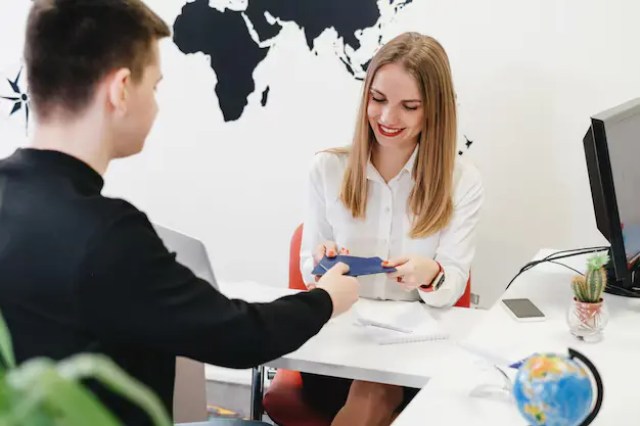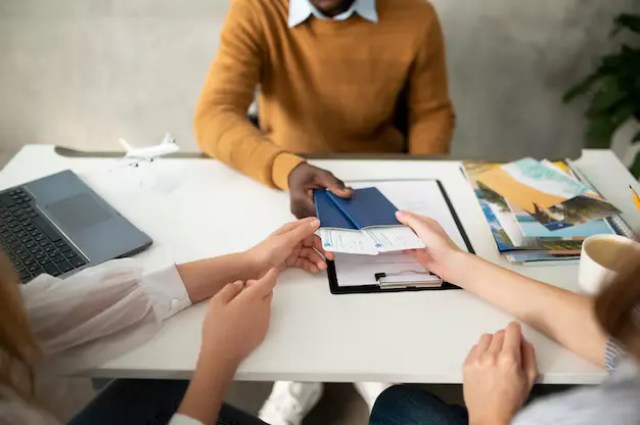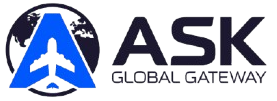
Navigating the process of an interview for a visit visa is very challenging.In fact, it remains the critical step in the procedure when one is seeking travel permission to a foreign country.
This guide provides that. It offers the visit visa interview tips proven successful to increase your possibilities of a positive outcome.
Whether you’re a student, a businessman, or a leisure traveler, this guide is for everyone. It is prepared especially for anyone who is looking to prepare for a visit visa interview.
We would talk about the details that encompass the visa interview procedure. This would include, therefore, the kind of preparation, what to expect during, and how to handle difficult questions.
We will also provide you with a comprehensive visa interview guide. This would include a checklist of important documents and common interview questions.
Keep in mind that every visa interview is unique, but proper preparation and mindset would lead you to sail through it successfully.
So let’s get started. Good luck with your visit visa interview.

Understanding the Visa Interview Process
The visa interview is the primary step in the visa application process. The main agenda revolves around the assessment of one’s intent to visit along with confirmation of details, though. It is also one’s chance to contextualize the paperwork submitted by a person.
Every country has specific requirements for its visa interview process. It is essential to do some research on and familiarize yourself with these requirements before time. It will, therefore, be easy to align your preparation to the particular expectations of the visa officers.
Your performance in the interview may determine the outcome of your application. Therefore, practice is very important. Familiarizing yourself with the process and practicing with mock interviews can help ease nerves. Use this opportunity to present yourself confidently and prove your case to the interviewer.
Preparing Your Documentation
It is an essential preparation to have all the required documents for your visa interview. This will give you support for your case and strengthen your credibility. This will help ensure that you are adequately prepared to present the evidence required to justify your trip.
Begin by ensuring all your documents are up to date and accurate. These are to include a valid passport with at least six months of validity beyond the stay and proof that all documentation and forms have been correctly completed.
Gather supporting documents that may attest to the authenticity of your travel intentions. Examples may include a copy of your itinerary, information about accommodation, and return tickets. All this will add credence to your genuine travel intention and strengthen your case.
If you are sponsored, you should have relevant financial documents. This may include bank statements or even an affidavit from your sponsor, proving that they do indeed support you. This serves to evidence that you’re able to support your visit.
It never hurts to remember the many specific country requirements, mostly application medical treatments or company business travel. Every need of the trip requires something in your proof, therefore tailoring your documentation that would show the purpose and application purpose of your request paperwork.
If you prepare everything well beforehand, you definitely do not have to sweat or be panicky about coming into that interview. Using a checklist will ensure accounting for all of what must be given.
Checklist of Essential Documents
It is good to make a checklist in preparing your documents.It helps ensure nothing important is left behind on the day of the interview.
Here is a suggested list of important documents to prepare:
Valid passport, which must be valid for at least six months beyond your planned stay
Completed visa application form
Passport-sized photos according to the specific country’s requirements
Visa payment receipt if applicable
Proof of travel arrangements, such as round-trip flight booking and itinerary
Accommodation proof reservation of a hotel or invitation letters in case of staying with family/friends
Mean of finance proof bank statement sponsorship letters
Additional documents by type of visit: employment confirmation; academic enrollment; medical history
Make sure that it fits your application type or the requirements of your desired country. Proper preparation will ease the interview process.

Dressing for Success
Appearance greatly influences the visa interview. Proper dressing shows professional respect towards the meeting. Therefore, it helps to condition the whole process and has the chance of leaving a pleasant first impression in the immigration officer’s mind.
Dress neatly and professionally, as you would for an interview. For men, it could be a button-down shirt with slacks or even a suit. Women should opt for a blouse over a skirt or tailored pants. Such outfits say to the interviewer that you have taken the process seriously; your earnestness in trying to get the visa.
Pay attention to details like grooming and hygiene, as they also play a role. Ensure your clothes are clean and pressed, and avoid overbearing colognes or perfumes. Small touches, like polished shoes and tidy hair, contribute to an overall presentable look. These considerations help in leaving a positive impression and set a foundation for a successful visa interview.
Common Visa Interview Questions and How to Answer Them
You will probably be asked several standard questions during your visa interview. These are attempts to verify your intentions with the information you have submitted. Preparations beforehand can be excellent in boosting your confidence level and fluency while addressing the questions.
Expect questions about the purpose of your visit. They may ask for specifics about your travel plans, including the duration and activities planned. Be concise and stick to the facts to clearly communicate your intention.
You might also be questioned regarding your connections to your homeland. Giving detailed, truthful responses about your family, employment, or property ownership will further strengthen your case. This reassures the officer that you intend to return home after your visit.
Another common theme encompasses your financial status. It is best to be able to tell the officer that you are capable of supporting yourself in traveling. This relates to the ability to support themselves while on the trip in question.
Some possible interview questions will include:
- What is the objective of your visit?
- What is the duration of stay?
- Who do you wish to visit, and what will be their details?
- What is the source of the funds for your travel?
- Preparation is the key to handling these questions well. Knowing their intent will enable you to give them an answer that will satisfy their inquiry with the visa officer.
Talking About Your Travel Intentions
Be as straightforward and direct as possible when talking about your travel intentions.State clearly the primary purpose of your visit: to either tour, visit relatives, or attend a conference.
Provide a structured itinerary if possible. Detailing your plans, such as flight dates, hotel bookings, and activities, adds credibility to your statements. It also demonstrates thorough preparation.
Avoid mentioning long-term plans like migration or job hunting. The focus should remain on the visit aspect of your visa application. Keeping your answers relevant reassures the visa officer of your intentions to comply with visit visa regulations.

Demonstrate Ties to Your Home Country
One of the critical aspects of an interview is proving your strong attachment to your home country. This can be talking about elements such as family, career, or property, which would make returning after your visit worthwhile.
Talk about family ties and responsibilities that demand your return back to your home country. Some other commitments that may demand your return include returning to work or future plans attached to your current location.
Highlight employment details or business ownership as proof of local ties. This will show that your visit is only temporary and that you intend to resume your duties at home once you have finished traveling.
Talking About Your Financial Status
When talking to the interviewer, you need to talk about your financial status with confidence. The visa officer wants to know that you can support yourself without problems during your visit.
Produce bank statements, payslips, or any other documents that reflect your financial situation. These documents must cover several months and reveal steady sources of income.
If there is a trip sponsor, clearly state your relationship to the person sponsoring you and his or her income. Full information about this person’s profession and source of income may be useful for establishing that you can pay for your visit.
Day of the Interview: What to Expect
On the visit visa interview day, make sure you are well prepared and composed. Knowing what to expect will help you prepare for the anxiety and present your case effectively.
It’s essential to arrive early at the interview. It provides time to navigate security checks and mentally prepare for the interview. Being early is also a sign of punctuality and seriousness, so it will make a positive impression.
Security processes can be very common, including those conducted in airports. Be sure to comply with every instruction so you do not experience a significant delay. You will surely have a hassle-free and smooth procedure if you cooperate with the officers.
You’ll probably be at a designated waiting area before your security check. Go through your papers and compose your nerves because you may use this opportunity. Besides, a good mind can definitely help a great deal during the procedure.
It is very important to be on time at the consulate. Try to arrive at least 30 minutes before your appointment. This buffer helps you manage any last-minute delays.
Security measures in the consulate can be pretty tight. Generally, bags, phones, and electronic devices are not allowed inside. So, you need to plan accordingly. By following these rules, you can ensure a smooth entry and a good beginning to your visit.

Interview Conduct
How you behave during the interview matters the most. Treat the visa officer with respect and polite words throughout the interview. That is a professional mannerism that can leave an imposing, positive impression on them.
Answer questions clearly and to the point. It becomes evasive if overly explained. Keep it brief and to the point. Transparency in communication adds to a person’s credibility in front of the officer.
And lastly, show confidence without being cocky about it. Greet the officer by making eye contact and fully listen to what is required. This helps portray being well-prepared and worthy of the interview process.
Body Language and Communication Tips
Your body language communicates a lot during a visa interview, sometimes even more than words. It’s vital to maintain open, positive gestures to reinforce your spoken answers.
Begin with a strong but gentle greeting. It sets the tone for amiable, respectful communication. Make sure to have eye contact because it implies confidence and honesty in your intent.
Avoid crossing arms or fidgeting—these are indicators of nervousness or defensiveness. Sit comfortably but attentively so that you show you’re interested in the discussion.
Speak clearly and not too fast so that the officer has a chance to understand you. You can even prepare some key phrases beforehand if the interview is not held in your first language.
Keeping your responses concise and relevant reflects preparedness. Avoid tangents that can distract from the main topic. This focused approach helps convey your message effectively.
Handling Tough Questions and Red Flags
You may be confronted with challenging questions during a visa interview. These questions are aimed at testing the coherence and consistency of your responses. Keep calm and composed.
Common red flags would include gaps in employment, unclear travel intentions, and insufficient ties to your home country. Be prepared to counter these confidently.
If you are caught off guard by a question, do not rush to answer. Take a moment to think before responding clearly. If you need clarification, politely ask for it so that you can be sure you understand the question.
After the Interview: What to Do Next
Once your visa interview is over, there are a few things you should do. First, make sure all your documents are returned to you and check for any additional instructions from the consulate or embassy.
One has to keep track of his or her visa application. Most embassies usually offer online portals with regard to tracking processing updates. Sometimes processing may take longer because it’s seasonal and depends on the country.
Prepare for whatever result that may come. With the planning, you will ensure readiness to act in whatever is given. Keep going through the official guidelines about how to prepare for results.
If Your Visa Is Approved
Congratulations! Your visa application is approved. Now go over every detail, whether it’s the expiration date or the entry conditions to be eligible for entry, so that you can ensure that your travel plans are correct.
Make travel plans for a stay with the intention stated for the visa. Provide for lodging, transportation, and any planned activities. Always carry copies of your visa and the associated documentation with you as you travel.
If Your Visa is Denied
A visa denial is frustrating. It is essential to comprehend why this denial occurred and then to go through the issued documents or feedback by a visa officer for any specification on what should be rectified.
Reapply after the identified flaws have been rectified. Change your application according to the rectified issues and attach new supportive documents if needed.
Seek time to consult with visa experts or legal professionals if necessary. They can offer valuable insights into how to improve your application and increase your chances of success in future submissions.
Avoid common mistakes and visa scams.
Navigating the visa interview process effectively requires awareness of potential pitfalls. One common mistake is providing inconsistent information. Always ensure that the details in your application match what you share during the interview.
Another frequent error is neglecting to prepare thoroughly for the questions you might face. Review typical questions and practice your responses to avoid appearing uncertain or unprepared during the interview.
Visa scams are becoming highly sophisticated, so always ensure you use official channels to apply for visas or even get advice. Be wary of anyone who promises to guarantee visa approvals for a fee. Such offers are most of the time fraudulent and can jeopardize your chances of a successful application. Staying informed through trusted sources helps protect you from scams and enhances your overall visa interview experience.
Conclusion:
Applying for an interview to get a visit visa can be pretty terrifying, but it’s perfectly feasible. It can improve a lot if honest answers are set, a lot of things are prepared, and this is confidently presented.
Remember, each interview is an opportunity to communicate your true intentions and plans. So, be calm, truthful, and positive when you go for the interview. With proper preparation, you can sail through the process and start your journey with confidence.
FAQs
Q1: What should I bring to my visit visa interview?
A: You should bring all essential documents, including your valid passport, completed visa application form, passport-sized photographs, proof of travel arrangements (such as itinerary and flight bookings), proof of accommodation, and any financial documents. A checklist can help ensure you don’t forget anything.
Q2: How long does a visit visa interview typically last?
A: A visit visa interview usually lasts between 5 to 30 minutes, depending on the questions asked and the visa officer’s assessment. The key is to provide clear and concise answers without oversharing.
Q3: What if I make a mistake during the interview?
A: If you realize you made a mistake, stay calm and politely correct yourself as soon as possible. Honesty is crucial, and visa officers appreciate candidates who can acknowledge their errors.
Q4: Can I appeal if my visa is denied?
A: Yes, depending on the country’s regulations, you can often appeal a visa denial. It’s essential to understand the reasons for the denial and address those issues in your appeal. Consulting with a visa expert can be beneficial in these situations.
Q5: How can I improve my chances of getting my visa approved?
A: To improve your chances, ensure you provide complete and accurate documentation, demonstrate strong ties to your home country, arrive early and well-prepared for the interview, and present yourself confidently. Practicing common interview questions can also help.
Q6: What types of questions will I face during the interview?
A: You can expect questions about the purpose of your visit, your travel plans, your financial situation, and your ties to your home country. Be prepared to provide clear and concise answers related to these topics.






